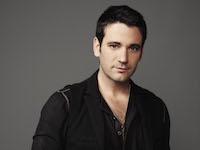|
- Getting Started
- Help
- Master Lists
- Useful Links
- Features
[Peer Review][Skill] Law
(This is a thread from Mizahar's fantasy role playing forum. Why don't you register today? This message is not shown when you are logged in. Come roleplay with us, it's fun!)This is the Archives forum for Peer Review.
Moderator: Scribes
[Peer Review][Skill] Law
![]() by Marina Agamand on December 2nd, 2014, 6:11 pm
by Marina Agamand on December 2nd, 2014, 6:11 pm
Last edited by Marina Agamand on September 24th, 2016, 10:54 am, edited 5 times in total.
-

Marina Agamand - Unabashedly Disastrous
- Posts: 65
- Words: 93397
- Joined roleplay: August 22nd, 2013, 7:52 pm
- Race: Ghost
- Character sheet
[Peer Review][Skill] Law
![]() by Eleret on December 7th, 2014, 12:51 am
by Eleret on December 7th, 2014, 12:51 am
| My first thought when I saw your draft: This is a long writeup -- but it ought to be! I really appreciate the time you spent on definitions here, which are a very, very necessary thing. For the most part, I find the article to be laid out clearly and easy to follow. Given that law is not in any way my field of expertise, that's a very positive thing! But I do have some revisions to suggest, as well. I'm going to forgo grammatical edits in this review, because I've got a lot of other comments to make. First, though, I'm going to drop in some comments on related skills: I recommend adding Persuasion, Investigation, and Planning. Probably as major skills. Also, I would disagree with you, that lawyers do benefit quite a bit from a sense of politics. They should be informed on what is politically appropriate, and knowing the system also leads to knowing how to manipulate the system to get the outcome they 'want' from a juridical or personal perspective. Bear in mind that many systems will run on personal connections and favors at least as much as any official body of law. And finally, I’d think a lawyer should have a decent level of politics if they’re to take on any high-profile or high-consequence cases… and expect them to come out well, anyway.
Small nitpick: the two largest organisations that spanned half a continent each suggests there have been other organizations spanning half-continents. I propose "...the two largest organizations known in Mizahar, spanning half a continent each, and they both..."
This feels like a blanket overgeneralization to me. For one, surviving ~175-200 years (as I estimate) underground may well have required adoption of and strict adherence to legal codes. In that sort of close confinement, absence of law would probably lead to everyone dying (and may well have, for groups which did not endure to become a modern domain). Also, I think Syliras and Zeltiva have had their systems for a while, and the Akalak and the Drykas seem to have kept their systems largely intact through the centuries as well, so they aren’t exactly “just developing”. (Others also, but I speak of what I'm most familiar with.) I gather you mean to say that none of the above practice “pure law”… but I don’t know what that means, or what makes for a “robust” justice system, or how those differ from current practices. Instead of giving a brief negative historical overview, I think this article would benefit more from a section on what makes a “robust justice system” and how it benefits a society. Right now, you indicate that ‘pure law’ promotes prosperity, but you don’t convey how or why. I do not come away from this with an understanding of why some norms are “better” than others at the level of societal prosperity. In my opinion, the above point is one of the most important elements to add in.
Small nitpick: I’m not sure this is appropriate for a skill writeup. This sounds like a character’s motivational drive, not a piece of lore.
Another nitpick: I would hesitate to assume people will ever not argue. It might be better to say something like “a lawyer who can support his claims with a divine mandate has the strongest argument he can possibly possess”.
Given that neither modern polities (to my knowledge) nor the Empires (as you state) ever had less than absolute authority, I wonder if this aspect of law even has much of a foothold in Mizaharan juridical theory. You go on to say that fundamental systems are "exceedingly rare" in modern Mizahar -- rare, or nonexistent? If they’re rare, then at least one actually exists: provide examples, please! Otherwise, if there’s is no modern or historical precedent for fundamental law in Mizahar whatsoever, 'fundamental law' would be a purely theoretical subject IC -- and probably subject to a good deal of debate and criticism and even derision, the way new concepts are. I think it is important to emphasize that.
Nitpick: This is another blanket statement. Always, for every law, under every circumstance, in every city which has a law system?
This is not necessarily true. Oral histories may retain much the same information, especially if the lawyer has some idea of who to ask. It CAN be impossible to find precedents, yes, but probably there is someone who is the go-to for that kind of thing for their social group, because a society without written records is still probably big on status and relationships and interactions. That's just part of being people. So all of these things -- relationship of families, standing, conflicts and outright feuds, patched-up disagreements and the how of solving them -- factor into that societal math. Besides, if any two groups had a conflict serious enough that the legal precedent matters, they probably also told the story about it a great many times, and in that way the precedent probably gets passed down.
Another nitpick: I feel like the mention of “criminal” here muddies the waters. A criminal, by definition, is one who breaks the law. But by the logic you just finished laying out, custom is tradition and fills in legislative gaps, it is not law. I think it would be better to rephrase this to something about ‘punishment’ or ‘condemned’ or otherwise drop the technical term “criminal”. Maybe “any deviation from custom is considered ‘abnormal’, and may sometimes be condemned as strongly as a true breach of law’.
I’m not clear how “fundamental principles” differ from “customs”. What is an example of a fundamental principle? And why are arguments based on these principles “unconvincing”? Speaking from a naïve perspective, if a principle is “fundamental”, I’d think it makes for an excellent argument! So please, do elaborate on this.
First, a small thing: I suggest rephrasing When strict enforcement is a priority, literal interpretation leaves little to be desired to something like Literal interpretation of laws minimizes ambiguity and lends itself well to strict enforcement. Literal interpretation can leave a lot to be desired, as you go on to convey in the rest of the section. Second, I don't agree with Generally only applicable to divine mandates and written law... If a sovereign makes a verbal statement, and conveys it verbatim to his lawyers, and they enforce it literally, well, that is literal interpretation, is it not? What you might do, instead, is conclude this paragraph with something along the lines of “Literal interpretations are only feasible when a norm with specific wording can be referenced, such as a divine mandate or written law.”
Why is this method "more difficult to apply"? Elaborate on this, please. Also, what constitutes an "error" in this context? An error in application? An error in interpretation? From whose perspective does an "error" occur? Similarly, the outcome from this interpretation is more "expedient" than... what? And what makes an outcome 'expedient' in the first place? Is this expedient as in quick, or expedient as in practical/pragmatic/easy?
The weight that custom carries, I think, is going to depend very strongly on culture. Societies with a strong common culture are going to give their social norms a lot of weight, even if those norms are not officially law. So this is another blanket statement that doesn't necessarily apply. Also, this is the second instance where you've simply stated that "this argument is not as good". Good and bad, weighty and trivial, exist in the perceptions of the beholder. So they're going to vary with culture and context and training. I strongly suggest you avoid saying "this is a good source" and "that is a bad source". Instead, try to provide context illuminating the strengths and weaknesses of a particular norm or interpretation and when it should be applied. That will also assist players in making their own interpretations and portrayals of the skill.
Small nitpick: Just say “very long life spans” here. When racial lifespans can run the gamut from 1 year to 450 years to eternal, “average” is a rather meaningless value.
Is this truly going to be the case in a medieval-esque society? I would expect at least some if not many executive/administrative/judicial positions to be held by politicians and/or the equivalent of nobles. They might be conferred as political appointments/rewards, not on merit, so the person in the seat may or may not be a ‘lawyer’. Unless you mean to define a lawyer, at least in part, as one who holds such a seat. Also, are prosecutors and defense attorneys -- and judges, for that matter -- really all that common throughout Mizahar? I feel like this paragraph is more reflective of some modern RL societies than the varied cultures of Mizahar.
Similarly, as this section stands, it sounds like it's supposed to be a universal system. But each society is bound to be different. Overall, I think this article would benefit from some more explicit description of HOW to practice law in Mizahar. Right now, there are many very necessary definitions, but I feel like there’s little on practice. I would like to see a couple of paragraphs very briefly outlining the different law systems in Mizahar. Obviously, the meat of that belongs in city lore and not here, but I think it would be worthwhile to systematically highlight the systems and major differences. Syliras and Riverfall are very codified. Riverfall tries everything by combat. And so on. For that matter, you might go one step further and instead of highlighting the city law systems, write a small paragraph specific to each city about what characters who practice law might be expected to do. That would give a lot of insight for players and graders on what law skill most applies to, how to utilize it, and when to award it. The above paragraphs are, in my opinion, the other major takeaway for this review. And that concludes my comments! You've definitely got a really good foundation here, I think the greatest lack is that it needs some more practical context to go with the theoretical. |
-

Eleret - Player
- Posts: 314
- Words: 179278
- Joined roleplay: October 21st, 2012, 12:33 am
- Location: Shipped to Syka
- Race: Konti
- Character sheet
- Storyteller secrets
- Plotnotes
- Medals: 1
-

[Peer Review][Skill] Law
![]() by Traverse on January 6th, 2015, 5:01 pm
by Traverse on January 6th, 2015, 5:01 pm
Just a very small spelling error:
Other than that I found this article very informative, I though the progression write ups sounded great, and thought you covered a lot here.
I agree with Eleret that there is a lack of RL context to go with this article. You do mentioned more than once the differences between cities and what a lawyer has to work with depending on the situation, but I feel like there should be examples of current cities in Mizahar and the common types of law practices, and how they operate under ruling bodies or systems in that city, at least as a foundation for people looking to practice the skill, I feel like someone working to maintain master level status would potentially have the opportunity to change these systems in one way or another, but the way they go about that and operate would be very different in say Syliras vs. Taloba
Their course of work consists of tree steps:
Other than that I found this article very informative, I though the progression write ups sounded great, and thought you covered a lot here.
I agree with Eleret that there is a lack of RL context to go with this article. You do mentioned more than once the differences between cities and what a lawyer has to work with depending on the situation, but I feel like there should be examples of current cities in Mizahar and the common types of law practices, and how they operate under ruling bodies or systems in that city, at least as a foundation for people looking to practice the skill, I feel like someone working to maintain master level status would potentially have the opportunity to change these systems in one way or another, but the way they go about that and operate would be very different in say Syliras vs. Taloba
[Peer Review][Skill] Law
![]() by Marina Agamand on January 31st, 2015, 12:17 pm
by Marina Agamand on January 31st, 2015, 12:17 pm
|
Last edited by Marina Agamand on May 5th, 2015, 7:34 pm, edited 1 time in total.
-

Marina Agamand - Unabashedly Disastrous
- Posts: 65
- Words: 93397
- Joined roleplay: August 22nd, 2013, 7:52 pm
- Race: Ghost
- Character sheet
[Peer Review][Skill] Law
![]() by Orin Fenix on March 5th, 2015, 12:54 pm
by Orin Fenix on March 5th, 2015, 12:54 pm
| So first of all I wanted you to know that I'm incredibly impressed with the write-up you did. I found it incredibly in-depth both about the theoretical foundations of law as well as the practical issue of practicing law in certain areas. I don't have a lot of notes for you and I may have missed some, but here are what I've got. Small grammar nitpick: I believe the colon in the following sentence should properly be a semi-colon.
Overall I think my largest critique is one that has been already brought up. That is the issue of how law is actually practiced in Mizahar. You are right when you say that there's a lot of overlap between government administration and the laws. Also, I understand the difficulties in trying to create a law section for every city and region when that is properly something that belongs in the city lore page. However, I agree with the above assessment that perhaps you're trying to make law into too much of an umbrella term. From this article, it seemed like every time someone in a position of authority did anything it would be constituted as an act of law. Also, while this may be straying into the realm of theory which I am not well versed in at all, it seems to me that social conventions and norms that are commonly understood in a culture do not necessarily fall under the purview of law. Also, in instances where custom is breached and an individual is punished either officially or unofficially, again, I'm not sure whether that should be considered law. If someone is ostracized because they aren't conforming then that act isn't necessarily criminal in nature, as I understand it. Also, while you're correct that most societies need for their laws to be well known and understood by the general populace, that is by no means the case. There are several instances I can think of where laws were intentionally kept opaque to the lower classes to help keep them subservient. I can also think of totalitarian regimes or periods of history where secret police were employed where laws were deliberately withheld.
Again, I have to disagree with you on this point. Oral traditions are well documented among many cultures and have been used to settle disputes. While I can think of several real life examples, I know for a fact that that there is at least one Mizahar example, the Chaktawe. All of their stories are used as both teaching and cautionary tales as well as used to help settle disputes. If we are accepting that rituals and customs are laws in certain cultures than we have to accept that verbal laws can be used as a valid point in an argument. Keep in mind that most of these cultures drill the tales into children starting from a very young age and they are not allowed to tell them until they are word perfect. Chaktawe Abalyas in training who mess up the telling of a story or do not have a word-perfect memory are actually barred from training and occasionally are driven from the tribe. Speaking about your concern about size, maybe this article could be split up into two parts and perhaps should belong on two separate lore pages. One for the actual definition and the skill write up, and one for the laws as they apply to each city. I know that's a lot of work but it might help understanding if you split this article up into theoretical explanations of the law and the practicalities of practicing law in Mizahar. This would also help with one other question I had. While you did a great job explaining the intricacies of law as they apply to each city, each racial group also has certain laws that they follow that aren't necessarily reflected in the city write-ups. Sticking with the Chaktawe example from above, for instance, they have two authority figure, Abalyas, the storytellers who are always female and the Wayhali, the male clan leaders who are the final authority. These aren't addressed in your article at present and while I haven't gone through the race lore at large, I'm sure there are other instances of culturally specific laws as opposed to regionally specific ones. I don't know if any of these comments helped, but I just wanted to say again how impressed I am with all of your hard work. If you have any questions about what I wrote or need help with this please let me know. |
-

Orin Fenix - Almost Iron But Actually Master Chef
- Posts: 938
- Words: 1186489
- Joined roleplay: January 24th, 2015, 12:06 am
- Location: Riverfall
- Race: Human
- Character sheet
- Storyteller secrets
- Scrapbook
- Journal
- Plotnotes
- Medals: 3
-


-

[Peer Review][Skill] Law
![]() by Marina Agamand on February 11th, 2016, 4:22 pm
by Marina Agamand on February 11th, 2016, 4:22 pm
|
-

Marina Agamand - Unabashedly Disastrous
- Posts: 65
- Words: 93397
- Joined roleplay: August 22nd, 2013, 7:52 pm
- Race: Ghost
- Character sheet
[Peer Review][Skill] Law
![]() by Aladari Coolwater on July 4th, 2016, 2:10 am
by Aladari Coolwater on July 4th, 2016, 2:10 am

Hello! I know it's been awhile since this article has been addressed, but I thought I would try to give it another push. Most of my revisions are either tiny grammar things, or rewording. I suppose that's a good thing, since it means the article was comprehensive and well-formatted. 
I also must say, I very much enjoy the Law by Region portion, and I think you did an excellent job giving just the right amount of info on cities as to give a good idea of the practice style, and still leaving some creativity up to the mods and players.
Now, on to my notes.
I don't think there's technically anything wrong with this, but it is a somewhat confusing structure to me. You might try playing with this one to find a better wording.
"Allowed" sounds a little out of the professional tone for the piece. Permitted may be a better word.
It is spelled defense, not defence.
Also, the Oxford Comma. I highly prefer it, but if you have something serious against it, I suppose it's not vital. A
Should be “will not yield good, (comma) practical results”. Or you can remove either “good” or “practical”.
You may not be able to do this, but Planning is not currently on the list of skills. I've seen it added to a couple CS's, and rewarded in grades, so I'm sure it's fine to use, but with links to the skills, the Planning one goes nowhere. How would we go about adding a Planning stub?
Oxford again.
Worsen is a strange word, and again I feel breaks the very professional tone of the piece. How about “damage” or even “decline”?
I don't think you make standpoints. You either take a standpoint or make a point.
Plurality conflict. Change to action (singular), or change to are instead of is to make it plural.
Whomever. Whom is used when it follows a preposition, in this case, “left to” is the preposition.
Oxford.
I don't think the "if he has nothing better to do" is necessary, and sounds a bit degrading, as though Calligraphy is a sign of a rarely-employed lawyer.
Hyphenate either both or neither, here. The inconsistency is not good.
Just missing a word here. "Applied and enforced by the Black Sun and Ebonstryfe"
"Konti" should be capitalized.

I also must say, I very much enjoy the Law by Region portion, and I think you did an excellent job giving just the right amount of info on cities as to give a good idea of the practice style, and still leaving some creativity up to the mods and players.
Now, on to my notes.
Naturally, not all sources exist in every group, but to the extent they do, they come in the following declining order of importance:
I don't think there's technically anything wrong with this, but it is a somewhat confusing structure to me. You might try playing with this one to find a better wording.
stealing back what was stolen from you is allowed
"Allowed" sounds a little out of the professional tone for the piece. Permitted may be a better word.
Judges, prosecutors and defence attorneys
It is spelled defense, not defence.
Also, the Oxford Comma. I highly prefer it, but if you have something serious against it, I suppose it's not vital. A
and his work will not yield good practical results,
Should be “will not yield good, (comma) practical results”. Or you can remove either “good” or “practical”.
Planning - where observation is the skill to spot details, planning is the skill to organise them. Especially at higher levels, a lawyer must be able to map out not only the numerous facts of a case, but also the countless possible solutions and outcomes. Only when he has sorted the cards he has on hand will he be able to decide what cards are the best to play.
You may not be able to do this, but Planning is not currently on the list of skills. I've seen it added to a couple CS's, and rewarded in grades, so I'm sure it's fine to use, but with links to the skills, the Planning one goes nowhere. How would we go about adding a Planning stub?
those of his clients, his allies or his own
Oxford again.
when trying to improve or worsen someone's position in the eyes of the powers that be
Worsen is a strange word, and again I feel breaks the very professional tone of the piece. How about “damage” or even “decline”?
lawyer that possesses philosophical thought is more capable of making complex moral standpoints,
I don't think you make standpoints. You either take a standpoint or make a point.
Which actions constitute a criminal offence is clearly documented,
Plurality conflict. Change to action (singular), or change to are instead of is to make it plural.
or left to the personal judgement of the Archwizard or whoever else has the authority on the particular matter.
Whomever. Whom is used when it follows a preposition, in this case, “left to” is the preposition.
built, maintained and staffed
Oxford.
If he has nothing better to do, a lawyer can learn Calligraphy to add an element of luxury and prestige to his work.
I don't think the "if he has nothing better to do" is necessary, and sounds a bit degrading, as though Calligraphy is a sign of a rarely-employed lawyer.
number crunching and paper-sifting
Hyphenate either both or neither, here. The inconsistency is not good.
Brief in wording but broad in purpose, they are applied and enforced the Black Sun and Ebonstryfe respectively.
Just missing a word here. "Applied and enforced by the Black Sun and Ebonstryfe"
Due to their uniquely harmonious society, the konti do not generally use juridical methods.
"Konti" should be capitalized.
"The sea always filled her with longing, though for what she was never sure."
- Cornelia Funke
- Cornelia Funke
-

Aladari Coolwater - Rock the boat.
- Posts: 477
- Words: 267621
- Joined roleplay: March 8th, 2016, 3:26 am
- Location: Syliras
- Race: Human, Vantha
- Character sheet
- Storyteller secrets
- Scrapbook
- Plotnotes
- Medals: 3
-


-

[Peer Review][Skill] Law
![]() by Marina Agamand on July 26th, 2016, 12:16 pm
by Marina Agamand on July 26th, 2016, 12:16 pm
|
-

Marina Agamand - Unabashedly Disastrous
- Posts: 65
- Words: 93397
- Joined roleplay: August 22nd, 2013, 7:52 pm
- Race: Ghost
- Character sheet
[Peer Review][Skill] Law
![]() by Ferrin Al'Mandrikan on September 22nd, 2016, 1:58 pm
by Ferrin Al'Mandrikan on September 22nd, 2016, 1:58 pm
Kenashian law is defined by the subtle tug-of-war between the families. Public law is tied to the Magistrate, so there's no such thing as a full-time public official in Kenash.
I strongly advise, when your're talking about Kenash and the families, you must let the audience know that their are a particular family that run Kenash. They're known as "Dynasties" just to inform, this is vital information for the audience to know. Otherwise, you can confuse the readers.
Also: I believe that you should include the skill "Intimidation"- through court meetings and interrogations this would help lawyers and judges in a way of which to gain information, by certain means.
A Little Side Note: Don't forget to include the points in the skill progression. I.e 1-25: Novice
26-50- Competent
51-75- Expert
76-100- Master
This is just a reminder for others so that they know how many points is what.

Credits go to Fire!
"With a heart of steel, I raise my blade in combat. The only thoughts I have in my mind is whether I'd return home to my family. I am a soldier, and will fight for love and peace. That is the way of being a Syliran Knight"-Ferrin.
Sig :
Dimensions Changed to: 300x150 pixels.
Credits to Prophet for making this amazing Sig. He does a great job!
I'm Open To Guest Storytelling Let Me Know, and I'll See What I Can Do!
|| Syliras Lore * Syliras * Plotnotes * My Scrap *Ferrins CS ||
-

Ferrin Al'Mandrikan - Loving Family Man - Protective Squire
- Posts: 1072
- Words: 705389
- Joined roleplay: July 16th, 2015, 1:02 am
- Location: Currently in: Sylrias
- Race: Human
- Character sheet
- Storyteller secrets
- Scrapbook
- Journal
- Plotnotes
- Medals: 2
-


[Peer Review][Skill] Law
![]() by Attunement on September 24th, 2016, 10:26 am
by Attunement on September 24th, 2016, 10:26 am
This is ready for founder review.
-

Attunement - Retired Staff
- Posts: 23
- Words: 2551
- Joined roleplay: June 1st, 2016, 6:03 pm
- Race: Staff account
10 posts • Page 1 of 1
Who is online
Users browsing this forum: No registered users and 0 guests


